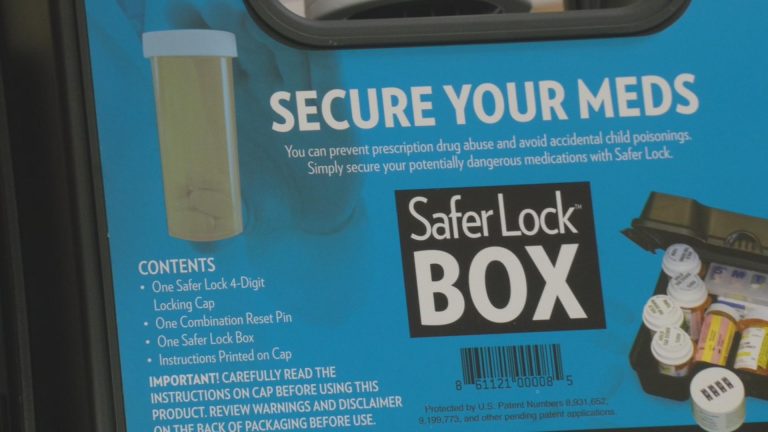
Vitamin Shoppe’s $194M Buyout Signals Retail Shakeup | Image Source: www.costar.com
LOS ANGELES, April 16, 2025 – In a movement that highlights the changing dynamics of the health and retail well-being sector, Kingwood Capital Management, LP and Performance Investment Partners, LLC announced a final agreement to acquire The Vitamin Shoppe from Franchise Group, Inc. for $193.5 million. The transaction, which is expected to be closed later in the second quarter of 2025, is part of the ongoing bankruptcy process of the Franchise Group in Chapter 11, revealing both a challenge and an opportunity for the parties concerned.
Based in Secaucus, New Jersey, The Vitamin Shoppe operates over 650 stores and has become a home name in the wellness lifestyle sales space. Offering vitamins and minerals to sports nutrition and homeopathic remedies, the retailer has products from 700 national brands as well as patented lines, including BodyTech ®, Vthrive ® and True Athlete ®. According to Franchise Group’s bankruptcy files, the strategic sale of this asset aims to mitigate the increase in financial burdens while opening a new path for The Vitamin Shoppe under private equity ownership.
Why is The Vitamin Shoppe sold?
At the heart of this transaction is the financial distress of your current parent company. Group of franchises presented for the voluntary bankruptcy of Chapter 11 in November 2024, citing post-pandemic economic winds, a sharp drop in discretionary spending and high levels of inflation. These macroeconomic forces hit retailers through the board, especially those with discretionary furniture and assets, no longer store closures and no longer release key assets.
In the case of The Vitamin Shoppe, its strong recognition of the brand and its loyal clientele made it an attractive target for investors looking for a turning story. According to Bloomberg Act, the acquisition of nearly $94 million is intended to preserve the chain’s retail printing by injecting the capital needed to improve operational capacity, modernize stores and expand its patented product offerings.
Who are the buyers and what are their plans?
Kingwood Capital and Performance Investment Partners (PIP) based in Los Angeles brings great experience in retail reinvestment strategies. Kingswood’s portfolio includes the global market, Save Mart and Mountain Equipment Co., each reflecting a history of revitalizing companies challenged by strategic transformation. PIP, a relatively new company founded in 2024 by private capital veterans Mark Genender, Ran Reske and Todd Eberstein, is also focused on consumer-oriented businesses where business improvements and capital injections can produce exponential growth.
In a joint statement, partner Kingwood Michael Niegsch and partner PIP Mark Genender expressed their confidence in the future of The Vitamin Shoppe.
“We are pleased to partner with the Vitamin Shoppe team and help them build on the success the company has enjoyed over the past 48 years… We plan to make significant investments in third-party trademark relationships, Rosechaamp owners; D, store updates and digital platform improvements. “
This indicates a multi-purpose investment strategy that affects every part of the customer journey, from in-store experiences to online customization and brand collaborations.
What does this mean for Vitamin Shoppe customers?
For millions of loyal clients, especially those who sign up for The Vitamin Shoppe’s reward program, this agreement promises a refreshing and high-quality experience. Kingswood and PIP suggested improving brick and mortar stores in the chain, modernizing designs and eventually integrating digital wellness tools to meet the expectations of changing consumers. This happens at a crucial time when health-conscious consumers demand more than just products: they want expert advice, technological experiences, and community engagement.
The strategic commitment to improving the omnichannel platform also suggests the possible integration of CEW-led recommendations, greater inventory transparency and faster compliance, a node to modern e-commerce standards. In addition, with the support of capital-rich partners, the retailer should increase its patented brands, offering high quality supplements at competitive prices, while increasing accessibility in underserved areas.
Why are private companies so interested in retail chains?
The Vitamin Shoppe agreement does not occur in isolation. Procurement is part of a broader trend in which private equity companies are increasingly acquiring well-known commercial chains, but with financial problems. Over the past year, Blackstone acquired a majority stake in the Jersey Mike Subs for a stated $8 billion, Roark Capital purchased Subway in a $9.6 billion transaction, and Sycomore Partners moved $10 billion to take Walgreens Boots Alliance.
These offers suggest that equity sees the retail landscape not as dying, but as evolving. According to Alternatives Watch, the movement towards “retail rebate” is driven by the belief that inherited brands can regain momentum through technological modernization, tilting operations and targeted investments. The Vitamin Shoppe, with its decades of history, a large brick and mortar footprint, and a strong digital presence, adapts perfectly to this mould.
What is the risk of private ownership of equity?
While private equity can give a new life to a battle mark, the approach is not without obstacles. Critics argue that PE companies often favour short-term profits, sometimes at the expense of employees or long-term brand shares. Examples were given of aggressive cost-reduction measures, warehouse closures and debt leverage that left the brands worse than before.
However, this agreement seems more strategic than the opportunist. Kingswood and PIP both focused on long-term operational improvements rather than rapid financial engineering. Given the current climate of wellness awareness, where customer confidence and product efficiency are paramount, cutting turns could be a brand killer. Therefore, success will depend on how new owners balance efficiency and authenticity.
How does this affect the entire supplement industry?
The transition of Vitamin Shoppe to equity has wider implications for the US supplement industry of $50 billion Alone. By increasing consumer scrutiny of the source of ingredients, label transparency and health claims, retailers such as The Vitamin Shoppe are under pressure to serve not only as traders, but also as managers of consumer welfare.
This acquisition could increase competition between welfare retailers, especially against digital brands such as Care/of or Ritual that have interrupted space with direct models for consumers. By doubling store updates and digital innovations, The Vitamin Shoppe has the potential to become a bridge between retail and the new-age welfare business, offering both the tactile reinsurance of physical stores and the comfort of online engagement.
You can also open the door to collaborations with small wellness startups. As Genender and Niegsch pointed out, the chain could serve as a powerful incubator for emerging brands, giving them space and visibility that they could not otherwise reach online. With more than 650 retail doors and a clientele with multiple demographic characteristics, The Vitamin Shoppe has the infrastructure to help niche products on a responsible scale.
What’s next for Franchise Group?
For Franchise Group, the sale represents both an immersion and a survival tactic. The company, which once exceeded a diversified portfolio, including American Freight, Pet Supplies Plus, and Buddy’s Home Furnishings, has faced the same pandemic and inflationary pressures that affect much of the retail trade. According to his presentation of bankruptcy to Delaware, the increase in spending in the pandemic era created unsustainable demand curves, followed by strong contractions in consumer purchasing power after stimulus.
Download The Vitamin Shoppe Group, Franchicia not only raises critical capital, but also reduces its operational complexity. It remains to be seen whether this is enough to restructure the rest of the company, but it offers a view of how many retailers can seek to realign or highlight in the context of post-bankruptcy transformations.
In an environment where retail and well-being are increasingly linked, the focus of The Vitamin Shoppe could serve as a case study of how inherited welfare brands can adapt, evolve and even thrive in an era of disruption, if combined with the right partners and a clear strategic roadmap.
As the agreement awaits firm regulatory approval and closure in the coming months, all eyes will be on how Kingswood and PIP put their vision to life, and whether they can transform an exit from Chapter 11 into a success story that replicates the future of retail well-being.





